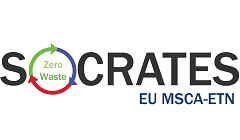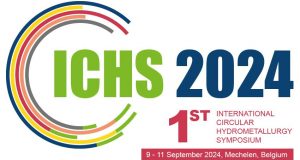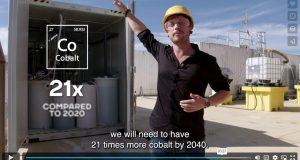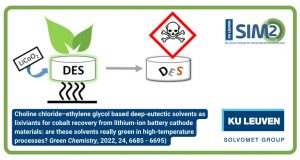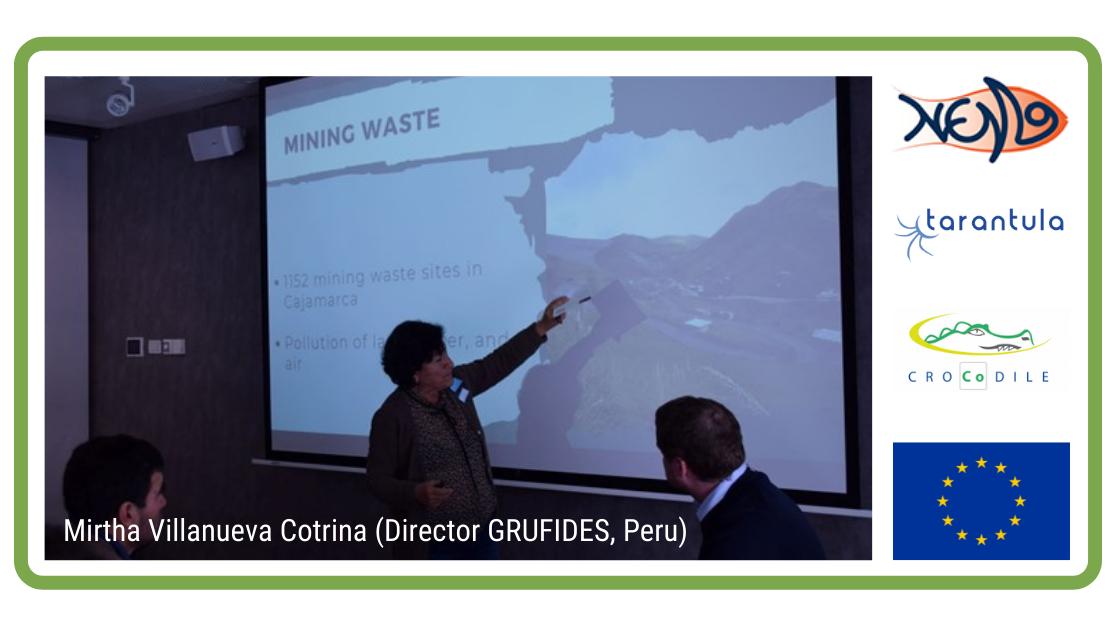The transition towards a climate neutral economy, as proposed by the European Green Deal, is highly resource intensive. Many challenges lie ahead to materialise this Green Deal. A broad cluster of EU Horizon 2020 projects, combined with several projects funded by development cooperation institutions, teamed up to analyse these challenges during an interactive seminar in the Flemish parliament in Brussels (March 12, 2020), just before the explosion of the Corona crisis. The organisers invited an inter- and transdisciplinary panel of experts to discuss several key issues across the metal supply chain. The policy recommendations put forward by these experts were further debated with the audience. A full report, including an executive summary, a link to all presentations and the Q&A with the participants, is now available.
Executive summary
The European Green Deal(EC,COM(2019)640) aims to make the EU’s economy sustainable. Raw materials are a crucial enabler of the transition to a climate-neutral economy. Indeed, this transition is highly resource intensive and strongly relies on Critical Raw Materials (CRMs) such as cobalt, rare earth elements, tungesten, niobium, tantalum etc.
Both globally and in Europe it is expected that the demand for (Critical) Raw Materials will continue to increase. As recently indicated in A New Industrial Strategy for Europe (EC,COM(2020)102) EU demand for raw materials is projected to double by 2050, making diversified sourcing essential to increase Europe's security of supply. That was the starting point of the event “The Green transition challenged by the metal supply chain”, co-organised by 9 European projects on March 12, 2020.
In the introductory remarks, Mr. Arnoldas Milukas from EASME emphasized that securing a sustainable supply of metals and minerals is key to meet to energy and climate targets for 2030. Subsequently, an intersectoral and transdisciplinary panel further discussed the opportunities and challenges that lie ahead.
Primary metal production has substantial environmental, social and economic impacts. Today, half of the greenhouse gas emissions comes from resource extraction and processing. Responsible sourcing, stronger due diligence guarantees, and corporate accountability are needed to increase support for this sector. A Social License to Operate (SLO) is crucial for the industry; this concept could be widened towards a ‘Sustainable Development License to Operate’ (SDLO).
The comprehensive impact of both resource extraction and recycling practices, as well as the policies regulating the sector, should be carefully assessed. Balanced regulation should guide companies and consumers towards more efficient recycling processes and a circular economy. Several technological and legal boundaries need to be overcome to enhance the ‘circularity’ (incl. a.o. recyclability) of materials and products. A holistic approach of the metallurgical processes (incl. energy demand, exergy and entropy) is fundamental. Transparency, traceability and certification (e.g. resource efficiency labels) in the materials supply chain are needed to move towards a truly circular and sustainable society. Finally, sufficiency policies should be considered to lower our energy and material demand, beyond technological innovation.
Introduction
The European Commission envisions Europe to become "the first climate-neutral continent by 2050" (EC,COM(2019)640). An ambitious European Green Deal should "enable European citizens and businesses to benefit from a sustainable green transition", which should be "just and socially fair" for all.
 This EU decision is undoubtedly good news in the current context of both the climate crisis and the COVID-19-outbreak; it creates many opportunities for the European society and industry. However, the proposed transition towards "green technologies" (e.g. renewable energy, e-mobility, stationary energy storage) relies heavily on "Critical Raw Materials" (CRMs), such as cobalt, neodymium (and other rare earths), tungsten, tantalum, niobium etc.
This EU decision is undoubtedly good news in the current context of both the climate crisis and the COVID-19-outbreak; it creates many opportunities for the European society and industry. However, the proposed transition towards "green technologies" (e.g. renewable energy, e-mobility, stationary energy storage) relies heavily on "Critical Raw Materials" (CRMs), such as cobalt, neodymium (and other rare earths), tungsten, tantalum, niobium etc.
Many challenges lie ahead to materialise this Green Deal: the current social and environmental impact of extracting and processing resources is high; supply chains of minerals and metals are often not transparent and may lack traceability; recycling efficiencies are for most CRMs still very low; there are no recyclability restrictions in product design; the dependency on non-EU countries is high and still increasing; etc.
A broad cluster of EU Horizon 2020 projects, combined with several projects funded by development cooperation institutions, teamed up to analyse these challenges. They invited an inter- and transdisciplinary panel of experts to highlight several key issues across the metal supply chain. The policy recommendations put forward by these experts were further debated with the audience.
Opening by EASME
In his o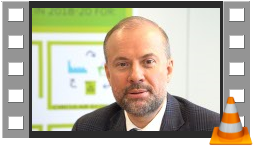 pening words, Mr. Arnoldas Milukas from the Executive Agency for Small and Medium-sized Enterprises (EASME) described the EU Green Deal as a package of legislative and policy initiatives towards climate neutrality by 2050. He indicated that it the EC clearly recognises that raw materials are indispensable enablers for carbon-neutral solutions in all sectors of the economy.
pening words, Mr. Arnoldas Milukas from the Executive Agency for Small and Medium-sized Enterprises (EASME) described the EU Green Deal as a package of legislative and policy initiatives towards climate neutrality by 2050. He indicated that it the EC clearly recognises that raw materials are indispensable enablers for carbon-neutral solutions in all sectors of the economy.
Furthermore, securing a sustainable supply of metals and minerals is of paramount importance to meet Europe's energy and climate targets for 2030 and to minimise the environmental impacts and risks linked to the raw materials sectors. He specifically highlighted the use of so-called "Critical Raw Materials" (CRMs), which are crucial for sectors like electric mobility, renewable energy and energy storage:
“CRMs are core enablers to make the EU Green Deal a reality. There is a fast growing global demand for raw materials, and Europe has to work towards a more efficient recycling and recovery of raw materials.”
Milukas stressed that the EU Raw Materials Initiative and the Horizon 2020 programme support research and innovation projects along the whole value chain:
“Sustainability, environmental performance and social acceptance of raw materials operations are important aspects of all H2020 projects in the field of raw materials and are fully integrated in their work programme” (…) "International attention towards risks in the supply chain of critical raw materials and strategic minerals has been growing in the past few years. The Commission wants to promote due diligence among value chains, and ethical sourcing of raw materials. The Due Diligence Ready portal launched in 2019 has been developed to help companies to source metals and minerals more responsibly and to comply with regulations including new EU conflict minerals regulations which will be effective from January 1, 2021.”
Keynote: The energy transition depends on materials and metals
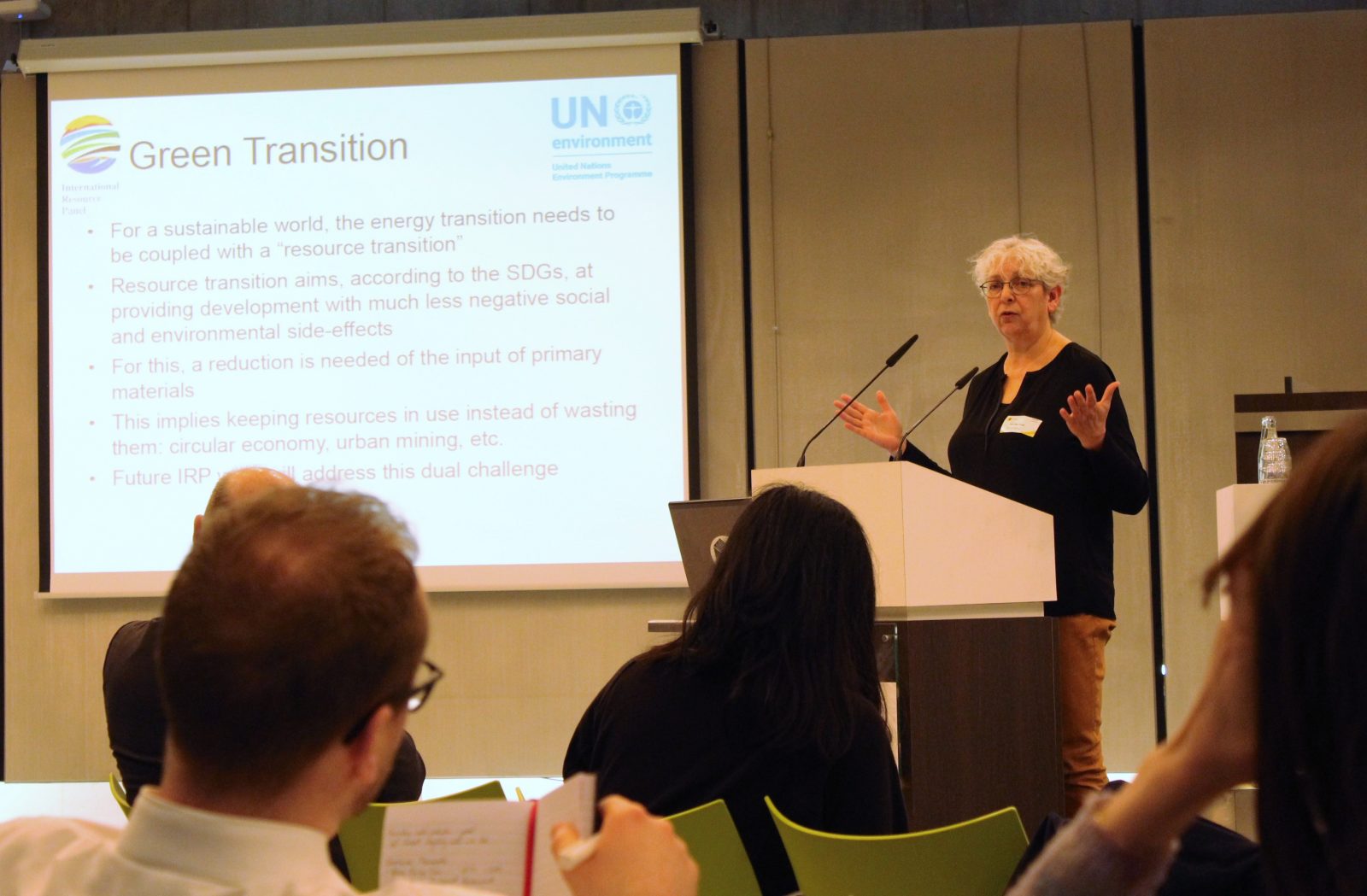 In her talk, Professor Ester Van der Voet from the International Resource Panel of the United Nations Environment Programme (UNEP – IRP) highlighted the metal challenges that lie ahead.
In her talk, Professor Ester Van der Voet from the International Resource Panel of the United Nations Environment Programme (UNEP – IRP) highlighted the metal challenges that lie ahead.
Mineral (and metal) extraction has increased substantially over the last 50 years, and is expected to further increase, as minerals and metals are key materials for our economy (cf. the Global Resource Outlook report). The current primary metal production is highly energy intensive and comes with environmental challenges.
In general, secondary metal production has less impact on the environment and on climate change. Van der Voet acknowledged that recycling rates are still low at present, and increasing them faces technical, economic and organisational challenges. Therefore, a primary production sector will remain important for the coming decades, and a well-managed mining sector is of vital interest.
Various governance frameworks at various levels and scales try to reinforce social, environmental and economic outcomes of mining. The IRP proposes a "Sustainable Development License to Operate" (SDLO) framework (cf. recently published report on “Mineral Resources Governance in the 21st Century – Gearing Extractive Industries Towards Sustainable Development”). The SDLO framework might become a basis for a multi-stakeholder and multi-level approach to improve practices, which might eventually lead to a certain certification scheme.
In its future reports, the IRP aims to integrate the metal requirements of the energy transition into its assessments, and to establish a link with the integrated assessments models and as such combine the demand for materials and metals with energy use and climate change. Two key global challenges lie ahead: (1) to scale up the production of materials and metals required for the energy transition, and (2) to do so while avoiding negative environmental, social and economic impacts.
The envisioned energy transition (cf. the European Green Deal) is highly metal-intensive and will lead to a considerable increase in the demand for metal and materials. The material requirement per kWh of renewable energy technologies is generally a lot higher than the material requirement per kWh of fossil fuel based technologies. The projections for Critical Raw Materials (CRMs) needed for present technologies show a huge increase in the demand, but these projections should be contextualised (technologies change rapidly, etc.). The projections for major metals (like copper, steel, aluminium, etc.) also show a rapid growth, as they are required for the encompassing infrastructure.
In conclusion, the energy transition depends on minerals and metals (and vice-versa). For a sustainable world, the energy transition needs to be coupled with a “resource transition”, which implies providing development with much less negative social and environmental side-effects. Therefore, also a reduction of the input of primary materials is needed and a stronger emphasis should be put on the circular economy, which means keeping resources "in the loop" (e.g. reparability & reuse, remanufacturing, urban mining & recycling).
Finally, prof. Van der Voet expressed her hope that "green" policies would be supported by a much better understanding of materials – energy nexus, considering them in a comprehensive system. She recommended to upscale the efforts for urban mining, and to take the necessary steps to move towards a circular economy now, despite the fact that it might take several decades before we achieve this. Simultaneously, the primary extraction of minerals and metals should move towards a SDLO for metals and mining.
Panel: views from NGOs, civil society, industry and academia
An inter- and transdisciplinary panel of four experts coming from the private sector, NGOs, academia and civil society shared their perspective on the European Green Deal and the resources needed to realise it. Speakers contributed not on behalf of their organisation, but rather based on their expertise in their sector. At the end of their contribution, each speaker put forward one key recommendation for the European Commission to consider when implementing the EU Green Deal.
 Wies Willems of Broederlijk Delen (Belgium) remarked that within the context of rising demand for minerals, the EU is heavily dependent on imports of metals.
Wies Willems of Broederlijk Delen (Belgium) remarked that within the context of rising demand for minerals, the EU is heavily dependent on imports of metals.
Willems highlighted that the European Green Deal puts a strong emphasis on obtaining "strategic access" to key minerals and metals. However, a rights-based approach is often missing in producing countries.
He indicated that the Business and Human Rights Resource Centre[1] (UK) has found that the 37 largest mining companies are involved in 167 cases of human rights violations that are linked to the extraction of these crucial metals.
Furthermore, he stressed that the largest reserves of these strategic minerals that are needed for the energy transition are often found in fragile areas that are more prone to conflict with higher indices of corruption.
In these social conflicts, the voices of local communities are often not heard and there is no "free, prior & informed consent"[2] as required internationally by the United Nations Declaration on the Rights of Indigenous Peoples (UNDRIP), the International Labour Organisation Convention 169 (ILO 169), and the Convention on Biological Diversity (CBD), among others.
At the end of his contribution, Mr. Willems recommended:
“Considering that the extraction of minerals is expected to continue to increase, and that the EU dependency on primary sourcing will not diminish any time soon, it is clear that in combination with sufficiency policies, and policies leading to a more circular economy, we need to strengthen the framework for responsible sourcing of minerals. This means stronger due diligence guarantees and corporate accountability.”
The EU can contribute to this in various ways: e.g. the 3TG (Tin-Tungsten-Tantalum-Gold) conflict minerals regulation[3], sector-specific mandatory supply chain due diligence beyond 3TG, promoting the debate on a general human rights legislation at EU level, and supporting a UN Binding Treaty on Business and Human Rights.
Dr. Jan Tytgat of UMICORE (Belgium) highlighted three key issues related to the management and processing of raw materials. Firstly, balanced regulations are needed: e.g. a ban on the use of lead might endanger the recyclability of many other metals, considering that lead is a base metal and an excellent collector metal for other precious metals (see also the contribution of prof. Markus Reuter). Restrictions on the use of carcinogenic compounds might endanger the domestic battery value chain production, as some cobalt compounds are classified as carcinogenic. A balanced regulation should thoroughly consider all impacts of a certain regulation.
Secondly, he called for the development of an efficient and effective fast track procedure for the transport of hazardous waste.
Thirdly, he suggested to put more efforts into the realisation of a more responsible sourcing of primary materials. In a recurring due diligence process, companies should consider risk mitigation and assessment, perform a background check of suppliers, and increase the traceability throughout the supply chain. A "battery passport" might offer a transparent overview of the origin of the different compounds.
With respect to the EU conflict minerals legislation, he suggested to widen the scope and also consider all 3TG containing raw materials, (by-)products and waste streams. Finally, as a key recommendation for the EC, he repeated his plead for "balanced regulations" which consider holistically all impacts within a broad context.
 In his address, Mr. Lap Hang Au from the Labour Education and Service Network (Hong Kong) reviewed the occupational health and safety issues in Chinese factories in the batteries industry, and focused on the lithium-ion battery supply chain.
In his address, Mr. Lap Hang Au from the Labour Education and Service Network (Hong Kong) reviewed the occupational health and safety issues in Chinese factories in the batteries industry, and focused on the lithium-ion battery supply chain.
With the increasing demand for a.o. electric vehicles, a boom of battery manufacturing is perceived. The working conditions in the major battery factories are generally better than in ordinary factories. However, several potential problems occur during the battery production process, due to the use of chemical and toxic elements.
Major companies are expanding their operations along the supply chain in the very competitive market. Due to the increasing demand for raw materials for the batteries, Mr. Lap Hang Au expected the opening of new mines, which could cause a negative environmental impact.
Major battery producers are interested in buying these mines to secure these raw materials, while adding a high value throughout the battery production process. Mr. Lap Hang Au recommended that this rapidly changing/growing supply chain needs to be monitored carefully. Stricter enforcement of social requirements can be emphasised during the procurement stage such as fulfilling the basic labour standards, avoiding harmful procedures and ensuring a decent living wage and job security. Secondly, he suggested companies to develop more suitable infrastructure and facilities, which can reduce the demand for (more toxic) battery materials.
Prof. Markus Reuter of the Helmholtz Institute for Resource Technology in Freiberg (Germany) presented his view on how to overcome technological and legal boundaries in the recyclability of materials and products. He emphasized that the image of the closed loop of the circular economy (CE) is not so straightforward. As an example, he referred to the fact that lead is an important carrier metal to recover many other metals[4]. Energy, exergy, entropy losses and basic physics should not be forgotten when discussing the CE. Metallurgy plays a fundamental role in a circular economy.
Next, he called for the development and the implementation of a recycling label for products. In a next step, an exergy resource efficiency label could complement this information. The loop of the CE can never be fully closed:
“The inconvenient truth of the CE is that the nexus energy–materials is a downward spiral. The best we can do is to mitigate this spiral and not to go down too fast. We can partially do that by design, but the complexity creates losses.”
Finally, he presented two key policy recommendations. First, metallurgical processing infrastructure is critical to a circular society, not only element criticality. A holistic approach, which truly considers the complexity of the metallurgical recycling and processing, is needed. Second, physics-based recycling and resource efficiency labels are required to provide a true basis for the economic evaluation of the CE system. This is a difficult challenge, but they can be done, and are needed to inform society about this complexity.
After the keynotes speeches, Mr. Said El Khadraoui, former MEP and till recently an advisor of the Commission’s European Political Strategy Centre think tank, shared his thoughts about the presentations. First, he emphasized that:
“the EU Green Deal goes beyond climate. It proposes a radical change in society on how we define the way we live and work, […] how we produce and consume, including our materials use. Half of the total greenhouse gas emissions comes from resource extraction and processing. This is a crucial issue for our future: there is a sense of urgency to deal with these emissions. This topic is now positioned at the heart of the European policy making.”
 Achieving the ambitious Green Deal will give us not only economic (e.g. competitiveness), but also social (e.g. health, quality of life) and environmental benefits (e.g. sustainable environment). El Khadraoui highligthed that it requires a multi-level, multi-stakeholder approach, which considers on the one hand the global level, urging for coherent and consistent policies, and on the other hand a profound understanding is needed of what this transition means across value and supply chains.
Achieving the ambitious Green Deal will give us not only economic (e.g. competitiveness), but also social (e.g. health, quality of life) and environmental benefits (e.g. sustainable environment). El Khadraoui highligthed that it requires a multi-level, multi-stakeholder approach, which considers on the one hand the global level, urging for coherent and consistent policies, and on the other hand a profound understanding is needed of what this transition means across value and supply chains.
The European Green Deal is an encompassing vision towards 2050 on which we should align our governance tools and policy instruments. The EU Climate law recently adopted, the climate pact foreseen in autumn 2020, the Industrial Strategy (EC,COM(2020)102) and the Circular Economy Action Plan (EC,COM(2020)98) published recently are examples. According to Khadraoui we need to create public-private partnerships, which can invest in the necessary infrastructure. Technological, economic and social innovation should allow us to monitor and adapt to change:
"The European Green Deal provides us with an unique window of opportunity to jointly tackle the challenges we are facing. There is a strong willingness to look at these issues from a systemic perspective, considering the interconnectedness, combined with the realisation that everybody needs to be on board. Let's make it happen!"
Q&A
During the keynote presentations, the participants could ask questions via the online tool wooclap. After the event, the speakers gave a short written answer to the questions and comments raised by the audience (pdf).
Debate
After the break, the recommendations were further discussed during an interactive debate moderated by Martin Watson from Prospex Institute. The debate was structured around four key topics taken from the keynote presentations:
How to secure a stable supply of critical raw materials for the Green Deal?
How to address public concerns over mining and manufacturing in the EU?
How to get the optimal mix of manufacturing in the EU vs. imports from outside the EU?
How to design, manufacture and recycle products for social and environmental standards?
Via Wooclap, an interactive and collaborative online tool, participants were requested to answer ‘Yes’, ‘No’ or ‘It depends’ to four questions, one per topic. The questions asked were: (1) Does the EU have enough CRMs for the Green Deal?; (2) Will public opinion support or oppose an increase in mining and manufacturing in the EU?: (3) Should the EU import CRMs and products from China, Russia and other countries?; (4) Can EU companies and consumers move towards recycling and a circular economy for CRMs?
Question 1: Does the EU have enough Critical Raw Materials (CRMs) for the Green Deal?
The majority of the participants choose ‘no’ as their answer. Currently, the EU does not have enough geological reserves nor the installations to cover the high and increasing demand for CRMs. However, technology evolves and the situation is different for each CRM (e.g. lithium production and recycling is initiating within the EU).
Prof. Ester van der Voet emphasized that no one calculated exactly what is needed for the Green Deal in terms of CRMs. Prof. Markus Reuter stated that when we recycle, we dilute our materials, which is an irreversible process. We need to consider this dilution in our calculations. In any case, he feels that we should reduce our demand for CRMs. Lap Hang Au stated that there is insufficient material for the future, and alerted that the current rate of depletion of batteries is very high. He considered that if our current lifestyle and its demand for energy and resources persists, we may have a shortage of CRMs. In the debate, the growth paradigm embedded in the EU Green Deal was also criticised. Sufficiency policies and the proposals from the post-growth and degrowth movements should be considered to minimise our energy and material demand, beyond technological innovation.

Question 2: Will public opinion support or oppose an increase in mining and manufacturing in the EU?
The vast majority of the participants opted for ‘it depends’ as their answer. Manufacturing and urban mining might receive more support than primary extraction. Companies are becoming more aware about the necessity to engage with all stakeholders, including local communities.
Wies Willems stated that manufacturing does not generate as much opposition as mining and that the urban population may not be as affected as the rural population, given that mines are generally not in their vicinity. The way the operations are run and the impact they generate are crucial to receive support or to be confronted with opposition.
Prof. Ester van der Voet indicated that with regard to urban mining, people are rather willing to cooperate even without a financial incentive. Several participants stressed the importance of engaging with stakeholders in a two-way dialogue, informing them, raising their awareness, and – especially – listening to and taking into account their concerns and needs.
Prof. Markus Reuter stated that in the foreseeable future, the actual footprint of materials could be calculated; this offers the possibility for consumers to take an informed decision and e.g. to opt for recycled products, while Lap Hang Au added that the concept of the Social License to Operate is not popular in China. Many people accept the manufacturing industry as it is often the only way for them to get a job. However, consultation of the population when developing new activities is crucial to avoid opposition, even despite the potential benefits they might generate.
 Question 3: Should the EU import CRMs and products from China, Russia and other countries?
Question 3: Should the EU import CRMs and products from China, Russia and other countries?
The majority of the attendees voted ‘yes’ and ‘it depends’.
The relevance of the Carbon Border Adjustment Mechanism in this context was clarified by Stefan Haenen (Hill and Knowlton Strategies). This mechanism allows the price of an import to reflect the carbon content of that product. As such we can reduce and/or prevent carbon leakage, i.e. an increase in emissions in third countries that are not subject to the same carbon constraints as in European countries. When developing these policies, the impact on the full value chain should be carefully considered (e.g. steel value chain) and balanced with the overall goal to reduce GHG emissions.
During the debate, the varying social, labour and environmental standards were considered, e.g. the import of cobalt from Congo (see also EU CROCODILE project). It was questioned whether people are willing to pay extra for responsible sourcing of materials. The general awareness should be raised about the origins of products, the conditions in which they are made, and which materials and primary extraction these products require. Traceability and certification are key.
 Question 4: Can EU companies and consumers move towards recycling and a circular economy for CRMs?
Question 4: Can EU companies and consumers move towards recycling and a circular economy for CRMs?
The vast majority answered ‘yes’. During the debate, the following issues were emphasized.
The standardisation of assessment and classification of the production processes of primary or secondary resources could allow to compare resources, taking into account their economic, social and environmental impact.
Incentives are needed to integrate increased recyclability in the product design. Solid data on waste generation and its content is needed to support binding policies about waste management. Balanced regulation (cf. presentation by Jan Tytgat) should guide companies and consumers to move towards recycling and a circular economy for CRMs.
Market access for irreparable and unrecyclable products needs to be regulated more strictly. The recently launched Circular Economy Action Plan shows a strong political will to take steps forward towards a CE.
Final statements and conclusion
The panellists offered their final comments. For Wies Willems top-down policies are necessary for circularity in addition to mandatory due diligence in supply chains. Coherent policy making and a level playing field are a must to push companies to adhere fully to standards of international human rights and to reduce environmental impacts.
Prof. Markus Reuter emphasized that solid data about a full flow sheet is the basis for the creation of comprehensive standards, labels and/or certification schemes, whereas Prof. Ester van der Voet reminded the audience that a circular economy is more than just recycling as it also includes increasing robustness of products, reuse and repair. Reducing our demand for new primary materials is key. Lap Hang Au repeated that corporate regulation and monitoring is central to ensure that problems can be reduced, mitigated or prevented.
Finally, Piet Wostyn (KU Leuven, SLO project manager for H2020 projects NEMO, CROCODILE and TARANTULA) was invited to present some of the key lessons learned from this event.
In the current context, the European and global demand for resources continues to increase. Even with 100% recycling rates, primary mining would still be needed to cover this demand. Sufficiency policies and degrowth strategies can help us to question our demand for resources. Voluntary measures are insufficient to reduce the economic, social and environmental impacts of resource extraction. Stricter regulation is needed, but should be balanced, looking at the broader implications of these policies. Coherent policy making is key and should be based on comprehensive calculations, which reflect the full impact of proposed regulations.
Mandatory due diligence should be monitored carefully; increased efforts are needed to facilitate transparency and traceability in the supply chain. Design for recycling should be implemented.
When discussing the potential economic, social and environmental impacts with stakeholders, it is important both to give information as to listen carefully to concerns and suggestions, from e.g. local communities living in the vicinity of an industrial activity.
About the authors
 Angelica Rasiewicz is a Junior Researcher at Prospex Institute, a not-for-profit organisation based in Brussels, enabling the participation of citizens and stakeholders in societally relevant dialogue and decision-making processes.
Angelica Rasiewicz is a Junior Researcher at Prospex Institute, a not-for-profit organisation based in Brussels, enabling the participation of citizens and stakeholders in societally relevant dialogue and decision-making processes.
 Alberto Vázquez Ruiz is a project coordinator at CATAPA (Technical Academic Committee for Assistance in Environmental Issues), non-profit organization based in Ghent (Belgium) working towards a sustainable and just future where primary mining is no longer necessary.
Alberto Vázquez Ruiz is a project coordinator at CATAPA (Technical Academic Committee for Assistance in Environmental Issues), non-profit organization based in Ghent (Belgium) working towards a sustainable and just future where primary mining is no longer necessary.
 Piet Wostyn is a project manager at the KU Leuven Institute for Sustainable Metals and Minerals and investigates multi-party stakeholder dialogue processes.
Piet Wostyn is a project manager at the KU Leuven Institute for Sustainable Metals and Minerals and investigates multi-party stakeholder dialogue processes.
[4] Cf. ETN Socrates policy brief “Lead metallurgy is fundamental to the circular economy” – https://etn-socrates.eu/communications/newsletter/
Acknowledgements
 The NEMO, CROCODILE, TARANTULA, SecREEts, NEXT, MIREU and ION4RAW projects have received funding from the European Union's EU Framework Programme for Research and Innovation Horizon 2020 under Grant Agreement No 776846 (NEMO – h2020-nemo.eu), GA No 776473 (CROCODILE – h2020-crocodile.eu), GA No 821159 (TARANTULA – h2020-tarantula.eu), GA No 776559 (SecREEts), GA No 776804 (NEXT – www.new-exploration.tech), GA No 776811 (MIREU – mireu.eu), GA No 815748 (ION4RAW – ion4raw.eu).
The NEMO, CROCODILE, TARANTULA, SecREEts, NEXT, MIREU and ION4RAW projects have received funding from the European Union's EU Framework Programme for Research and Innovation Horizon 2020 under Grant Agreement No 776846 (NEMO – h2020-nemo.eu), GA No 776473 (CROCODILE – h2020-crocodile.eu), GA No 821159 (TARANTULA – h2020-tarantula.eu), GA No 776559 (SecREEts), GA No 776804 (NEXT – www.new-exploration.tech), GA No 776811 (MIREU – mireu.eu), GA No 815748 (ION4RAW – ion4raw.eu).
The MakeICTFair project is funded by the EU's EuropeAid programme.
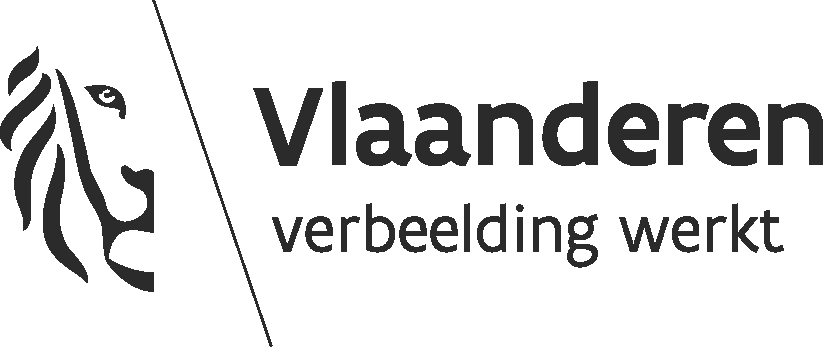 The FairICTFlanders project is funded by the Flemish Government’s ‘Embedding the International Development Agenda in Flanders’ framework. (www.fairictflanders.be)
The FairICTFlanders project is funded by the Flemish Government’s ‘Embedding the International Development Agenda in Flanders’ framework. (www.fairictflanders.be)
Finally, the authors acknowledge Dr. Peter Tom Jones (SIM² KU Leuven) for his editing and layouting of this contribution.
This event was organised with the financial assistance of the European Union and the Flemish Government. The contents of this event are the sole responsibility of the organisers and can under no circumstances be regarded as reflecting the position of the European Union or the Flemish Government.
